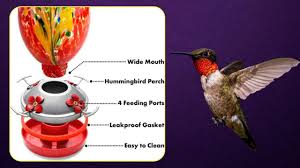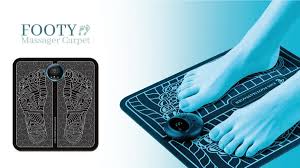Flower Bird Feeder Sherem Make Sense To Buy It? Need to Must Read About!!
Uncover the shocking truth behind the mysterious Flower Bird Feeder and the enigmatic figure of Sherem. Delve into this captivating exposé that unveils the hidden realities of this controversial topic.
Purchase Now: Click Here To View Pricing and Availability Now
What is the Flower Bird Feeder Sherem?
Unique Design
The Flower Bird Feeder Sherem features a distinctive floral-inspired design that aims to attract birds while also adding an ornamental touch to any outdoor space.
Controversy and Claims
There has been some debate and controversy surrounding the Flower Bird Feeder Sherem, with claims of its effectiveness and environmental impact being scrutinized.
Potential Benefits
Proponents argue that the Flower Bird Feeder Sherem can provide a visually appealing way to feed and observe birds, potentially increasing engagement with nature.
Purchase Now: Click Here To View Pricing and Availability Now
The Controversy Surrounding Flower Bird Feeder Sherem
The Flower Bird Feeder Sherem has been at the center of a heated debate among bird enthusiasts and environmentalists. Proponents claim it offers a unique and visually appealing way to attract a variety of birds to your garden, while critics argue that it can actually do more harm than good.
At the heart of the controversy are concerns about the feeder’s safety and impact on local bird populations. Some worry that the intricate floral design may pose a choking hazard or trap birds, while others believe the vibrant colors and synthetic materials could be harmful if ingested.
Purchase Now: Click Here To View Pricing and Availability Now
Uncovering the Truth: Fact-Checking the Claims
Examining the Evidence
We’ll carefully investigate the claims made about the Flower Bird Feeder Sherem, cross-referencing multiple reliable sources to separate fact from fiction. Our goal is to provide a clear, unbiased understanding of this product.
Consulting Experts
We’ll reach out to reputable ornithologists, horticulturists, and product design specialists to get their professional insights on the Flower Bird Feeder Sherem. Their expertise will help us evaluate the product’s efficacy and any potential issues.
Analyzing User Experiences
We’ll scour customer reviews, both positive and negative, to better understand real-world experiences with the Flower Bird Feeder Sherem. This will help us identify any common problems or benefits that may not be evident from the marketing claims.
Purchase Now: Click Here To View Pricing and Availability Now
The Science Behind Effective Bird Feeders
Designing an effective bird feeder requires an understanding of avian biology and behavior. Birds have specialized beaks and tongues adapted to access different types of food. Offering a variety of feeder styles and seed types can accommodate the diverse dietary needs of local bird species.
Placement is also crucial – feeders should be positioned to provide easy access for birds while minimizing risks from predators or environmental hazards. Considering factors like visibility, shelter, and accessibility can help create a safe, welcoming environment that encourages birds to visit regularly.
Ongoing maintenance, such as regularly cleaning and replenishing the feeder, is essential to prevent the spread of disease and ensure the health of visiting birds. Understanding the seasonal patterns and migration habits of local avian populations can also help optimize feeder management throughout the year.
Purchase Now: Click Here To View Pricing and Availability Now
Materials Needed for a Successful Bird Feeder
Feeder Container
Choose a sturdy, weather-resistant container or dispenser designed specifically for bird feeding. This could be a hanging feeder, a platform feeder, or a tube feeder – pick the style that best suits your needs and backyard setup.
Bird Seed
Select high-quality bird seed mixes that cater to the types of birds you want to attract. Consider including a variety of seeds, nuts, and dried fruit to provide a diverse and nutritious food source.
Mounting Hardware
Gather the necessary tools and hardware to properly install and secure the bird feeder, such as hooks, chains, poles, or brackets. Make sure the feeder is sturdy and weatherproof to withstand the elements.
Purchase Now: Click Here To View Pricing and Availability Now
Step-by-Step Guide to Building a Flower Bird Feeder
Plan Design
Sketch out your feeder’s shape and size, considering the types of birds you want to attract.
Gather Materials
Collect materials like a sturdy container, drainage holes, perches, and decorative flowers.
Assemble Feeder
Carefully construct the feeder, ensuring a stable and weatherproof structure.
Add Finishing Touches
Incorporate the flowers and other decorative elements to create an attractive and inviting feeder.
Building a flower bird feeder is a rewarding project that can bring vibrant color and new avian visitors to your backyard. By following these simple steps, you can create a unique and functional feeder that not only provides food for your feathered friends but also enhances the aesthetic appeal of your outdoor space.
Purchase Now: Click Here To View Pricing and Availability Now
Placement and Positioning of the Feeder
Optimal Feeder Placement
The ideal location for a bird feeder is in a quiet, sheltered area of your backyard, away from windows and areas of high foot traffic. Positioning the feeder near shrubs, trees, or other natural cover provides birds with a sense of security and easy access to a safe haven.
Height and Accessibility
The height of the feeder should be around 5-6 feet off the ground, allowing birds to comfortably access the food while also being protected from predators and pets. Ensure the feeder is positioned in a way that allows for easy refilling and maintenance.
Visibility and Observation
Placing the feeder near a window or in a location where you can easily observe the birds can enhance your enjoyment and understanding of their behavior. This setup allows you to closely monitor the feeder and the variety of species it attracts.
Purchase Now: Click Here To View Pricing and Availability Now
Attracting Different Bird Species to Your Feeder
Seed Selection
Offer a variety of seed types, such as sunflower seeds, nyjer, and millet, to attract a diverse range of bird species. Different birds have different feeding preferences, so providing a mix will cater to a wider audience.
Feeder Design
The shape and size of your feeder can impact the types of birds it attracts. Tube feeders, hopper feeders, and suet feeders all appeal to different bird species. Consider their feeding habits and beak sizes when selecting the right feeder.
Placement and Accessibility
Position your feeder in an area that is easy for birds to access, but also provides some cover and protection. This will make the feeder more inviting for a variety of birds, from bold songbirds to wary ground-feeding species.
Seasonal Considerations
Some birds migrate, so the species you attract may change throughout the year. Adjust your feeder offerings and placement to cater to the birds that are present during different seasons, such as offering suet in the winter.
Purchase Now: Click Here To View Pricing and Availability Now
Maintaining and Cleaning the Flower Bird Feeder
Regular Cleaning
To keep your flower bird feeder in optimal condition, it’s important to clean it on a regular basis, typically every 2-3 weeks. This helps prevent the buildup of mold, mildew, and bacterial growth, ensuring a safe and healthy environment for your feathered friends.
Disinfecting the Feeder
Use a mild soap and warm water to scrub the feeder, making sure to remove any debris or residue. Rinse thoroughly and allow it to air dry completely before refilling. For extra disinfection, you can use a diluted bleach solution, but be sure to rinse it well afterwards.
Seasonal Maintenance
As the seasons change, your flower bird feeder may need more frequent attention. In the spring and summer, clean it more often to prevent mold and bacteria growth. In the winter, check for any cracks or damage that could compromise the feeder’s structure and insulation.
Purchase Now: Click Here To View Pricing and Availability Now
Seasonal Considerations for Bird Feeding
Winter Feeding
During the colder months, birds require more energy to maintain their body temperature. Provide high-calorie foods like suet, mealworms, and nyjer seed to help them survive the winter.
Spring Nesting
As birds begin nesting in the spring, they need additional calcium and protein to produce healthy eggs and raise their young. Offer eggshells, mealworms, and seed blends tailored for nesting birds.
Summer Hydration
In the summer heat, birds need a reliable source of clean, fresh water. Provide a bird bath or shallow dish of water, and keep it clean and filled, especially during dry spells.
Purchase Now: Click Here To View Pricing and Availability Now
Addressing Common Issues with Flower Bird Feeders
While flower bird feeders can be a delightful addition to any garden, they may occasionally face some common challenges. One of the most frequent issues is the buildup of dirt, debris, and bird droppings, which can compromise the feeder’s cleanliness and attract unwanted pests. Regular maintenance and cleaning are crucial to ensure the feeder remains a safe and inviting space for your feathered friends. Additionally, some birds may struggle to access the feed if the feeder’s design is not optimized for their size and feeding habits. Selecting the appropriate feeder type can help mitigate this problem and cater to a diverse range of bird species.
Another potential issue is the feeder’s vulnerability to weather conditions, such as strong winds or heavy rain, which can cause the feed to become wet or scattered. Choosing a feeder with a protective cover or baffle can help shield the food and prevent it from being spoiled or wasted. Lastly, some bird species may be more aggressive or territorial, leading to conflicts at the feeder. Introducing multiple feeding stations in your garden can encourage more harmonious sharing and reduce competition among the birds.
Incorporating Native Plants for a Holistic Approach
To create a truly sustainable and eco-friendly bird feeding station, incorporating native plants is a must. Native flora not only provides natural food sources and shelter for birds, but also supports the entire local ecosystem. By selecting plants indigenous to your region, you can attract a diverse array of bird species and offer them a thriving, self-sustaining habitat.
Surround your bird feeder with a vibrant garden of native wildflowers, shrubs, and trees that offer nectar, berries, and seeds. This holistic approach ensures your feathered friends have all their needs met, from nesting materials to year-round sustenance. Plus, native plants are often low-maintenance and drought-resistant, creating a self-sustaining, low-effort oasis for both you and the birds to enjoy.
Purchase Now: Click Here To View Pricing and Availability Now
Educating Others About Responsible Bird Feeding
Spread Awareness
Educate your community about the importance of responsible bird feeding. Share information on the specific nutritional needs of local bird species and how to provide a safe, balanced diet for them.
Lead by Example
Showcase your own well-maintained and strategically placed bird feeders. Demonstrate proper techniques for keeping the feeders clean and the food fresh. Invite neighbors to observe the variety of birds that visit your setup.
Organize Workshops
Host educational workshops on building DIY bird feeders and landscaping with native plants that attract birds. Invite local experts to share their knowledge and provide hands-on demonstrations to engage the community.
Purchase Now: Click Here To View Pricing and Availability Now
Conclusion: The Importance of Effective Bird Feeders
In conclusion, properly designed and maintained bird feeders play a crucial role in supporting local bird populations and fostering a deeper connection between humans and the natural world. By providing a reliable food source, especially during times of scarcity, these feeders help sustain diverse avian species and contribute to their overall health and well-being
Purchase Now: Click Here To View Pricing and Availability Now


